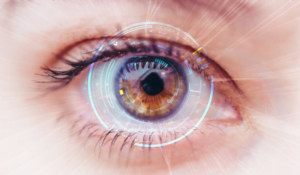
Most people wear glasses in order to see more clearly.
However, some believe that it is better to under-correct their vision, while others believe that it is better to fully correct it.
So, who is right?
There are a few reasons why someone might choose to under-correct their vision.
Some people believe that under-correcting their vision will help their eyes to see better and longer for near work.
Others feel more comfortable with a lower power as it has a reduced prismatic effect.
Meanwhile, there are also good reasons to fully correct one’s vision.
First, it is important to be able to see as clearly as possible in order to avoid accidents.
Second, clarity of vision can be important for work or school performance.
The debate over whether it is better to undercorrect or fully correct vision problems has been ongoing for years, with no clear consensus.
On one side of the argument are those who believe that it is better to undercorrect, as this can help the brain to adapt and improve vision over time.
On the other side are those who believe that fully correcting vision is the best option, as it allows people to see clearly from the outset and avoid any potential complications.
Ultimately, there is no right or wrong answer, and the decision of whether to undercorrect or fully correct should be made on a case-by-case basis.
However, it is always important to consult with a qualified professional before making any decisions about vision correction.
Frequently asked questions
Some individuals believe that under-correcting their vision can help their eyes adapt and potentially improve over time, especially for near work. Others find a lower power more comfortable, as it reduces prismatic effects.
Fully correcting vision is essential for clarity, minimizing the risk of accidents, and optimizing performance in tasks related to work or school.
Full correction ensures immediate clarity and aims to prevent potential complications associated with under-correction.
Some argue that under-correction might stimulate the brain to adapt and enhance vision gradually.





Recent Articles:

Alleviating Digital Eye Strain: Tips for Screen Users

The Truth About Seeing in the Dark

The Myth of Green Improving Eyesight

The Dangers of Looking Directly at the Sun

The Risks of Using Smartphones in the Dark on Eye Health

An Examination of Visual Phenomena for “Ghost Images”




